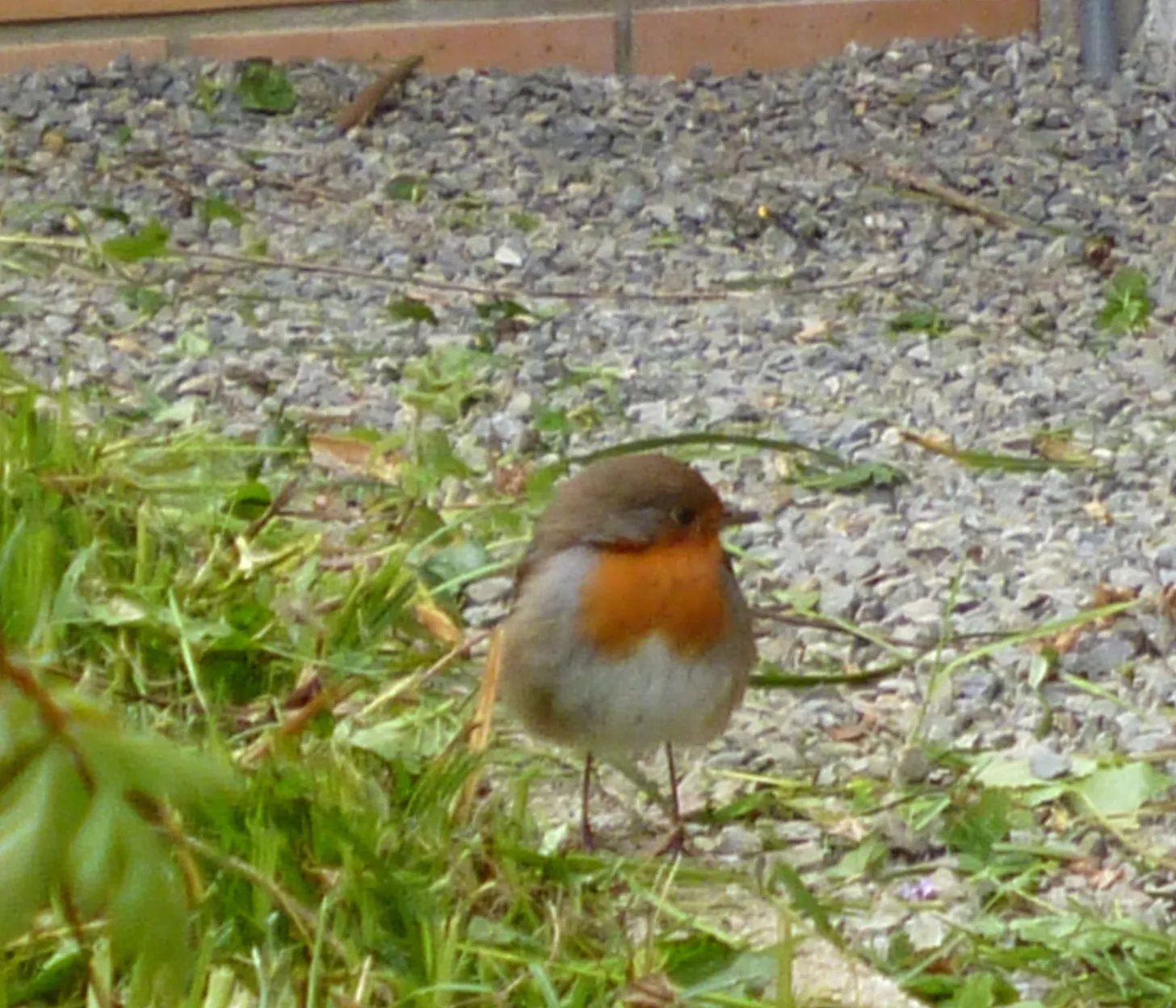Txori Txori Txantxangorri
When You Can’t and You Won’t
You should be mobile when you’re young, you should get an education and take new opportunities in unknown places and meet strangers, you should be exposed to other cultures and learn a language, you should acquire specialized skills in thrilling locales while trying unfamiliar cuisines. But if you are past the approved age when you go abroad, if your reasons aren’t the correct ones, if you don’t go back to where you came from, if your professional trajectory is more of a cowpath to a mudhole, then you will be questioned obliquely about your restlessness; the word “inquietud” will be used, and not the way it is used for men.
Flightiness hardly seemed the apt description. I was taking an intermediate Basque language proficiency test for the (redactedth) time. I had committed to mastering a difficult minority language for which only a paper credential would count for anything, the damp peg on which I would hang my hat. I was going to get it this time, man.
The self-assured man in his early 30s gave an articulate opinion about the use of animals in the circus. His hair looked freshly cut 9 months into the pandemic. He had been studying the language for a third as many years as I had. The moderators gave him the next section of the test while forgetting mine. Then they said it was my turn, so I stammered while trying to put some hardness into my voice and ask a question, but the male moderator cut me off and said that actually, he would be asking the questions. I told them I didn’t like the circus because I don’t like clowns. I thought they would find me amusing but they didn’t understand what I was saying through my mask. Then it was my turn to give a 2-minute talk about gastronomy, a subject I love and about which I ordinarily flow over with opinions.
“An appetizers is very-very important in Basque to cook. Cooking. To cooking.” Ah well, this wasn’t going as planned. I looked at my notes for 500 years while the traffic noise and the ass-freezing wind gave me an audacious nip no one else seemed to notice through obligatory December open windows. I couldn’t find the words, I’m still not sure where they went. I had two minutes to bring it home.
“Basque people make nice good food for the parties. The holidays. My mother-in-laws, a good nice fish soup on Christmas. And like that. Food like that. Birthdays, they have special cake. The cake of cream. Yes…” I’m not sure what else I said because I blacked out.
Then me and Rico Snipsnort had a guided conversation about pictures of different home interiors. He had something pertinent to say about his girlfriend's career in interior design and how he preferred the modernist interior. When the moderator turned to me he looked like he was bracing himself for a mess of tedium, for plunging the toilet, his resignedness apparent even though two-thirds of his face was covered. I said all the designs in the pictures were too lively for me. I also said I had a young cat who was lively, and so I couldn’t live in a lively house, because she, my cat, would break it. Break the lively house I mean. Oh shut UP.
How long should it take, realistically, to become reasonably proficient in another language? How long should you live before people start to covertly despise you for taking up room for too long? The answer to both depends on your personal charm, and when you possess little to none, well, not too long, then. I didn’t expect it to be easy but I did expect that by applying myself, I would make steady progress towards linguistic mastery, towards social integration. I’m unsure how much of my difficulties with Basque are simple test anxiety and how much is from a sense that I have nothing to say.
When I still lived in the U.S. I thought it would be interesting to learn Basque in the way it would be cool to know magic tricks for birthday parties or to knit fancy socks as a hobby. When I started studying the language formally, after encountering it in person and being as impervious to its meaning as if it were rain, I hoped to learn enough to read the newspaper and do enough basics to get a better job. Now I would feel like less of an asshole to be capable of chatting unhurriedly with my husband’s family, or to converse with my husband without feeling ridiculous and switching immediately to English, his third language, in which he is so advanced that when he asks about words he doesn’t know from the New Yorker, I don’t know them either.
Learning Spanish involved details in humiliation I did not completely foresee, but it followed a predictable course and I can now partake in it by myself for most reasons I would have to use any language, even though my accent will probably always be notably foreign enough to cause a nearly invisible social recoil when I start talking. Basque has been different for me in that learning it has not been linear, I often have to re-look up the same words in the dictionary again and again, and a grammar basic I thought I had learned years ago turns out to be no firmer within grasp than a pickle.
Basque has a maddening structure that is tantalizing in its versatility. Where English has a handful of prepositions and limited verb forms, Basque has an array of verb bits that orbit around the ergative, around who is doing what to whom, that fit together like Legos and are paired in structured ways with declined nouns. Learning to use a verb table feels like integrating functions in calculus. I can watch the news and largely understand what is being said, but the speed with which speakers of the language can fit the pieces together to form a coherent whole seems beyond me, like trying to plumb a drain from space.
Aside from a role-dependent intimate gendered “you” form that is only used by some native speakers, Basque lacks gendered pronouns. People often use the same word to mean “friend” and “random person on the street”. The verse form known as the bertso is in active use, with hip young people taking part in competitions to out-sing and outwit the other contestants with their clever use of spontaneously sung poems. Speaking a language that was forbidden for decades and looked upon as a low-class mountain language for longer has a cachet that is hard to completely understand when your primary language is the global lingua franca, although it is also unfair and missing the point to romanticize it, too. I have respect for Basque and its speakers, a respect that has yet to translate into real mastery. I feel impotent and I keep reading, I feel incapable and I keep listening to the news, and it trickles in and wears grooves into me, ever slowly. I wonder if I am simply going about it the wrong way and I try new approaches, and then I wonder if the problem is one of integration itself, mostly mine, but also one of circumstance.
If you walk into the hills and greet the people you see, perhaps 2 in 10 will respond at all. However, if I want to buy a lottery ticket, the daily newspaper will direct you to purchase one from Mikel Lujanbio. This town is small enough that it is assumed you will know how to identify and/or locate Mikel, should you want to buy a ticket. People at work ask me how I am getting on in my Basque studies, saying that “some people learn it fast,” while talking to me only in Spanish. My spouse, a native speaker who teaches university courses in Basque, complains that his students, many of whom have been educated in Basque their whole lives but who use it very little in social contexts, are not sufficiently fluent to work in the language. Foreigners who are praised for learning Basque are often hospitality or service industry workers, and their use of the language is utilitarian but not to the extent that anyone is handing them civil service jobs.
That is not to say that there aren’t people who will patiently draw you out in the language, but there is always still a bit of a barrier anyway, imposed, I think, a bit by both parties. I have read papers on language learning anxiety and tried to get in touch with a local researcher about it, I did a therapy workbook on anxiety. I have post-pandemic goals about conversations I will have with people in Basque, specific things I want to be able to do in the language. I spend a little time reading and listening to Basque every day because I know it will evaporate and be filled in by more English, my dessert language, if I don’t.
What I don’t do is talk very much at all. I know I need to, and I avoid it, I avoid it like phone calls or confessing my feelings or writing this essay. I need to chat, whether I have things to say or not. I don’t know if I’ll ever really feel part of this society, but I definitely won’t if I don’t invite the shame of the foreign by taking part in this language in the way it has been used for nearly all of its history, in speech.

